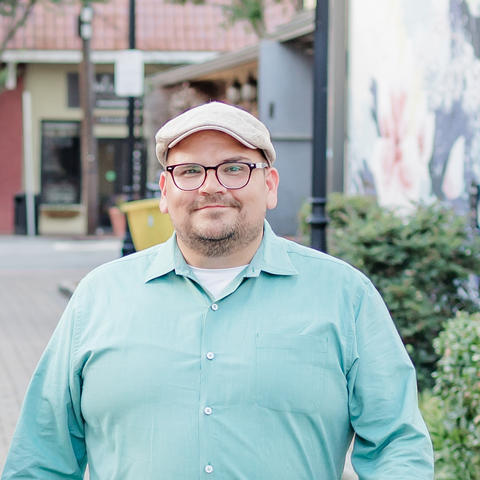
Section Branding
Header Content
Georgia Today: President Biden, Donald Trump, Gov. Brian Kemp tour storm damage; Savannah Bananas
Primary Content
LISTEN: On the Friday, Oct. 4 episode of Georgia Today: President Biden visited Valdosta to survey storm damage; former President Trump and Gov. Brian Kemp toured storm damage near Augusta; The Savannah Bananas announced their 2025 tour which includes the home of the Atlanta Braves, Truist Park.

Peter Biello: Welcome to the Georgia Today podcast from GPB News. Today is Friday, October 4th. I'm Peter Biello. On today's episode, President Biden visits Valdosta to survey storm damage. Former President Donald Trump and Governor Brian Kemp also view storm damage in East Georgia. And the Savannah Bananas have announced their 2025 tour. Yes, Truist Park, home of the Braves, is on the list. These stories and more are coming up on this edition of Georgia Today.
Story 1
Peter Biello: President Joe Biden visited south Georgia yesterday to assess storm damage from Hurricane Helene firsthand. GPB's Sarah Kallis reports from Berrien County.
Sarah Kallis: Biden visited a pecan farm in Ray City where trees lay uprooted in an orchard following damage from Helene. Biden says the federal government will pay for storm debris to be removed and provide assistance to farmers in the coming months.
President Joe Biden: This is going to pay, as I said, this hundred percent to clear all the things that need to be cleared. And on top of this and the Department of Agriculture is on the ground supporting ranchers, farmers and small businesses.
Sarah Kallis: The Department of Agriculture is reaching out to farmers to help them access needed aid. Buck Paulk manages the pecan farm Biden visited. He said he is grateful the president was able to see the damage firsthand.
Buck Paulk: You just have to realize you got to have help; that we're not just going to snap back from this. I mean, it's a — this is generational work that's involved in a perennial crop like pecans.
Sarah Kallis: Biden said storm recovery across the South will cost billions of dollars. For GPB News, I'm Sarah Kallis in Valdosta.
Story 2
Peter Biello: Former President Donald Trump and Gov. Brian Kemp toured the eastern side of the state to survey storm damage. This marks their first appearance together since before the 2020 election. It's also the first meeting of the two since Trump criticized Kemp for his unwillingness to call a special legislative session in the weeks after Trump was narrowly defeated by now-President Biden in the 2020 presidential election. They were scheduled to hold a joint news conference this afternoon at the Columbia Performing Arts Center in Evans, a suburb of Augusta.
Story 3
Peter Biello: It is not over. That's the message coming from Georgians in rural areas running in a swath between Valdosta and Augusta, still recovering from Hurricane Helene. GPB's Grant Blankenship today was in Wrightsville, about a 90-mile drive southwest of Augusta.
Grant Blankenship: By noon Friday, a Red Cross van was back serving hot lunches on a corner by a gas station downtown. Most of the volunteers sharing the food were school-age kids still waiting for word from Johnson County Schools about when they could return to class. Yolanda Wadley picked up lunch for her mother, who was waiting for word from FEMA about help with damage to her home.
Yolanda Wadley: I still have family members that are without lights, without water, but everybody's trying to be patient because pretty much everybody's been affected. But we do need the help. Definitely need the help. With cleanup, with food, water as much as possible.
Grant Blankenship: Wadley and others say the help they've received so far has been from family, friends, schools, churches — in short, the community. For GPB News, I'm Grant Blankenship in Wrightsville.
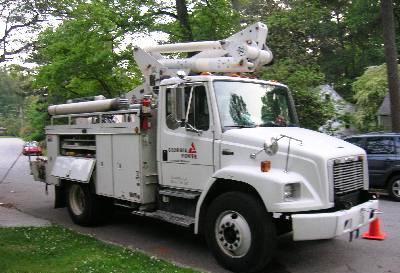
Story 4
Peter Biello: Georgia Power and Georgia EMCs say 216,000 people are still without power in Georgia following the hurricane. Deputy Secretary of Energy David Turk spoke to GPB today about his agency's response to the storm.
David Turk: This is not just a days and weeks effort. This is a months and literally years and decades to make sure everybody has affordable, reliable power.
Peter Biello: He says federal partners are bringing both material and monetary support to affected areas.
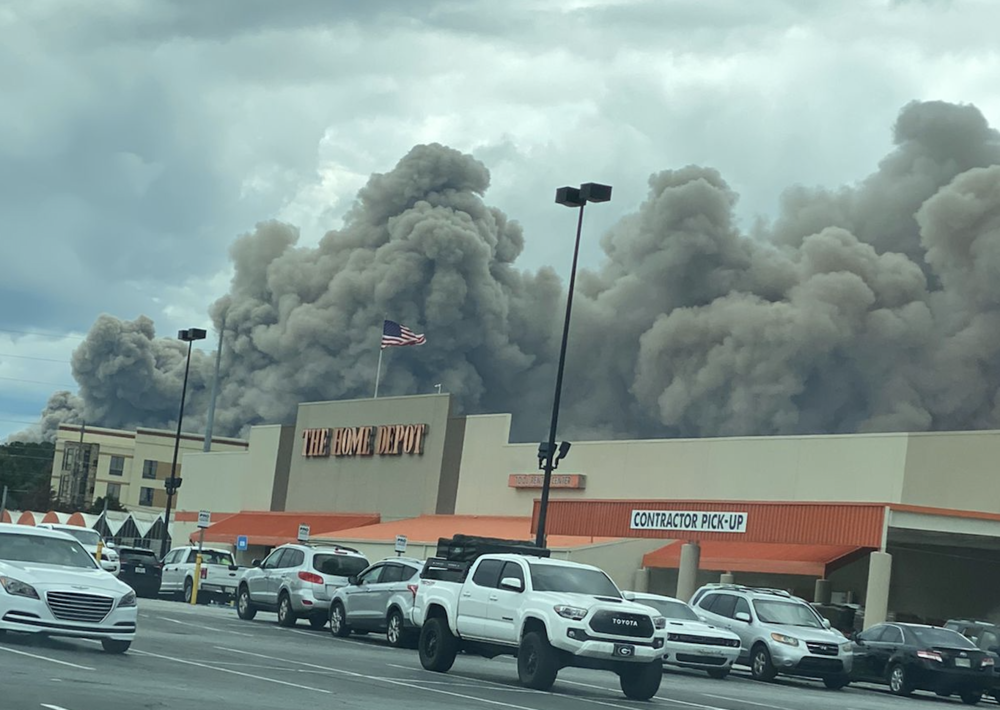
Story 5
Peter Biello: Students and Rockdale County Public Schools will attend class remotely Monday through Wednesday next week due to the chemical fire at the Biolab plant. The plant caught fire on Sunday and a chemical plume continues to spew from the chlorine manufacturing facility east of Atlanta. The district was on a previously scheduled break this week. Officials said they decided to go back to class remotely early next week because of the uncertainty of how long the plume will last and in what direction it will travel. They hope to return to normal operations later next week.
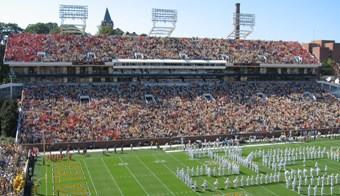
Story 6
Peter Biello: Georgia Tech has announced plans to invest a half billion dollars in its athletic program. The institute said today it's launching a fundraising campaign with nearly $300 million already committed. The plans include a renovation of Bobby Dodd stadium, home to Yellow Jackets football, and revamps to Georgia Tech's basketball and volleyball facilities, among other projects. The institute expects to complete construction on all the projects by 2027.
Story 7
Peter Biello: Berry College, Georgia Southern University, and the University of Georgia will host NCAA championships in major economic coups for Rome, Statesboro, and Athens. The association announced its picks for more than 200 tournament locations across two seasons on Wednesday. Berry College will host the Division III Tennis Finals in 2028. Georgia Southern University will host the National Collegiate Rifle Finals in 2027, and the University of Georgia will host the tennis singles and doubles finals in 2026 and the tennis team finals in 2027, both in Division I.

Peter Biello: Florence Nightingale is known throughout the world as a pioneer in the field of nursing. How she became that pioneer is a lesser known story. Columbus resident Melissa Pritchard's new novel, Flight of the Wild Swan, shows a different side of the so-called "Lady with the Lamp" — a precocious child, a strong willed young woman who had no interest in her family's wealth, a demanding boss with an incredible work ethic. I recently visited Pritchard in Columbus to talk about her work. Melissa Pritchard, thank you so much for speaking with me.
Melissa Pritchard: Thank you, Peter. I'm delighted to be here.
Peter Biello: What made you want to write a novel about the life of Florence Nightingale?
Melissa Pritchard: There are several answers to that, and I'll try to make them quick. One is that I've always been fascinated by Victorian women. I've written three previous novels about Victorian women. Florence came about because I was in London in May of 2013 and I had seen that there was a Florence Nightingale museum, and I went, "I remember reading about her when I was a child, and I love medical things, so I'm going to jaunt over there and see this little museum." So I walked over — this was in May 2013 — I walked over in the rain. I was the only person there and I lost track of time in there. It was like I entered another dimension. I was absolutely overwhelmed by her life and all the objects that related to her life. And at one point, I stopped in front of an etching of Sidney Herbert, who she worked closely and collaboratively with in medical reform. And I stood there and I looked at him and I said, "she knew him." They had some sort of close relationship. Nothing — I didn't see anything romantic, and I just knew there was some bond that they shared. And it turned out they did. The next thing that came was a feeling of just almost an electrifying sense of: I'm going to write a novel about this woman.
Peter Biello: Florence Nightingale came from a wealthy family, and she felt like she had been called specifically by God. Can you tell us a little bit about how Florence Nightingale viewed herself, as a young person first and then then later as the nurse and the nurse pioneer that she became?
Melissa Pritchard: You can almost divide her life into two parts with a ligament hinge in the middle of the Crimean War. And the first part is from her birth in 1820 until she left for the Crimea in 1834. As a child, she was precocious. Her father instantly recognized her intellectual powers, and he gave her a Cambridge education. He had been educated at Cambridge, and he did a very unusual thing for that period of time. He was liberal. He was a Unitarian, and he educated her to the level that he had been educated. And in those days, no woman received that kind of education. And she — she was brilliant, particularly in mathematics. And later on, that would move into statistics. Then as she reached this point at age 16, she was sitting on a granite bench between two giant cedars of Lebanon trees. And she wrote in her journal later that day that she heard the voice of God, calling her to serve, but she didn't understand what service she was to perform, what she was to do. Except it had something to do with alleviating the suffering of humans. That's all she gathered. But it was so important that she wrote it in her commonplace book, and she actually celebrated her jubilee 50 years later. She called it her jubilee of the day that she had heard that call. It defined her life from then on.
Peter Biello: Before she went to assist with the Crimean War and helping soldiers who were coming back, waves and waves of soldiers who were very badly injured, she was painted in the press as a certain type of figure. I don't want to say propaganda; you tell me how she was painted — But she was painted as a figure that would be admired so that people would be inspired to join her cause. Can you talk a little bit about who she was in the press at that time?
Melissa Pritchard: Yes. And during the Crimean War, which is 1853 to 1856, and it was the English, the Italians and the Turks, the Ottoman Empire against expansionist Russia — this was the first war where they had onsite wartime journalists. And William Howard Russell in particular wrote about the conditions of the soldiers at Scutari Hospital, the British soldiers. So the government was being blamed. The military was being blamed. So somebody had the bright idea to send Florence over there, this lovely high-class Victorian woman. She was sentimentalized by the press. And I think the government supported that because it kind of deflected from the corruption that was rife in the hospital system over in Scutari from the horrible conditions. These were the first British women nurses sent to wartime, first time ever. So it was the grand experiment. And Florence was blamed a little bit by her fellow nurses for being so strict. But I thought, well, she would have to be to make this grand experiment not fail. She'd have to be really a strong leader. She worked hard. I mean, she had to overcome so many obstacles. First, her family and then the height of British imperialism, the misogyny, the patriarchal mindset. Women had no rights. I mean, she just had obstacle after obstacle. The hospital administration at Scutari was trying to sabotage her at every turn.
You know who loved her? Were the soldiers, the common foot soldiers. Not the officers who bought their titles. They usually came from high-class families and bought their titles and had servants. No, no. She cared about the "lowly," quote-unquote, soldier who was recruited from the poorest of the poor, offered a unit, a fancy uniform and a shilling and a pint of beer and an adventure to go to war. She called them her boys. She loved them. She — that's who she devoted most of her service to.
Peter Biello: This is not, by any stretch, a romance novel. But Sidney Herbert is a political ally of hers. He's married. And the scenes between the two of them are few and far between. But there is so much electricity between the two of them, and it's almost like their work in advancing the field of nursing is kind of a stand-in for whatever romance that they couldn't have because of their circumstances. Can you tell us a little bit about the relationship that they had?
Melissa Pritchard: I don't know the true nature of their relationship. There's nothing written about it. You know, as a fiction writer, you have your ear to the ground. You have your ear to the research. And when I read in her journal that she said after Sidney, she was distraught after he died. When he died, she said, "I was his true wife. No one knew him as well as I did." She didn't say loved, but she said "no one knew him as I did. I am his true widow." And I was like, "Why would you say that? That's interesting." I don't know what happened between them, but I feel there was an affinity and I think they sublimated it through their work. It would have gone against both of their characters to have acted on and done anything other than what they did, which was to work in reform. Neither of them were revolutionaries as distinct from reformers. They were reformers. They worked within the system rather than trying to take down the system. They worked within it together.
Peter Biello: Melissa Pritchard, thank you so much for speaking with me about Flight of the Wild Swan.
Melissa Pritchard: Thank you, Peter. I really enjoyed our conversation.
Peter Biello: Melissa Pritchard's novel is the subject of the most recent episode of GPB's Narrative Edge,our podcast about books with Georgia connections. You can find it at GPB.org/NarrativeEdge or wherever you get your podcasts. Also, Pritchard will be speaking tomorrow afternoon at the Decatur Book Festival on a panel about weaving fact and fiction. You can find a link to more information about that at gpb.org/news.

Story 9
Peter Biello: Zoo Atlanta is planning special programs tomorrow ahead of the imminent departure of its last four giant pandas. The exact date the pandas will return to China hasn't been revealed. The zoo says it'll be, quote, "mid-October." China is letting its 25-year loan agreement with Zoo Atlanta lapse amid heightened diplomatic tensions between the U.S. and China. Other American zoos also are losing their pandas. Saturday's Panda Palooza is described as a, quote, "farewell party" for their, quote, "rock stars." Giant pandas have been identified with the zoo and Atlanta for the past 25 years.
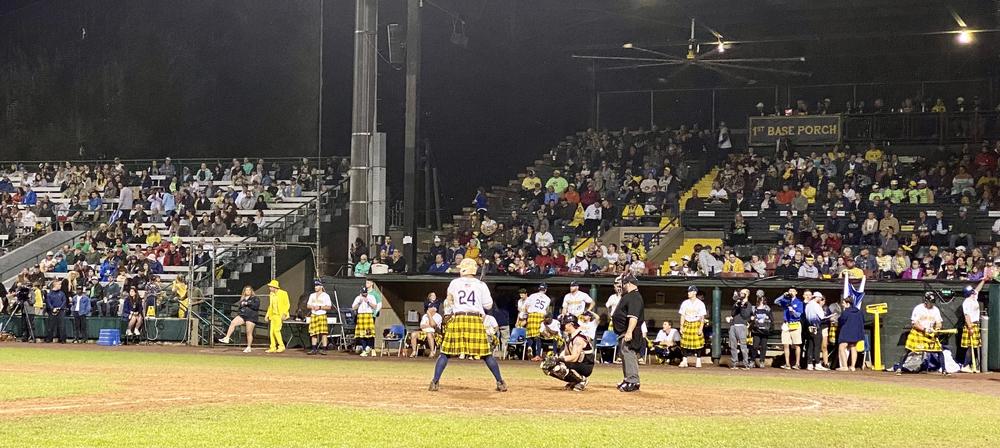
Story 10
Peter Biello: The Savannah Bananas have announced the location of their next tour of Major League Baseball parks and Truist Park is on the list.
Maceo Harrison of the Savannah Bananas: Up next, for the 2025 Banana Ball City World Tour. We are going to ATL, Atlanta baby!
Peter Biello: The Bananas are scheduled to play at the home of the Braves on March 29 and 30th next year. The Bananas will face three opponents, the Party Animals, the Firefighters and a new team, the Texas Tailgaters. Savannah Bananas owner Jesse Cole says two more teams will join the future Banana Ball Championship League in 2026. The Bananas started as a summer league team for college players and have since become a touring sensation featuring unusual rules, dancing players and umpires, and players on stilts. The Bananas also will host games at two NFL facilities in Nashville and Charlotte.
Peter Biello: And that's it for this edition of Georgia Today. Thanks so much for tuning in. If you want to learn more about any of these stories, visit gpb.org/news. And remember to subscribe to this podcast — that way we'll pop up in your podcast feed automatically on Monday afternoon. And if you've got feedback or a story idea, something going on in the state that we should know about, let us know by email. The address is GeorgiaToday@gpb.org.
I'm Peter Biello. Thank you again for listening. Have a great weekend.

